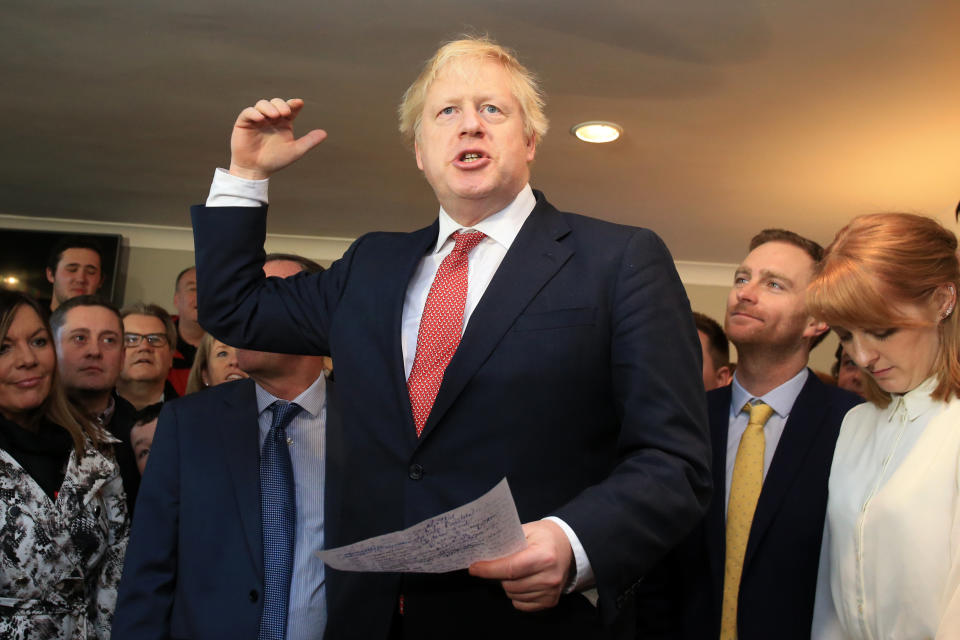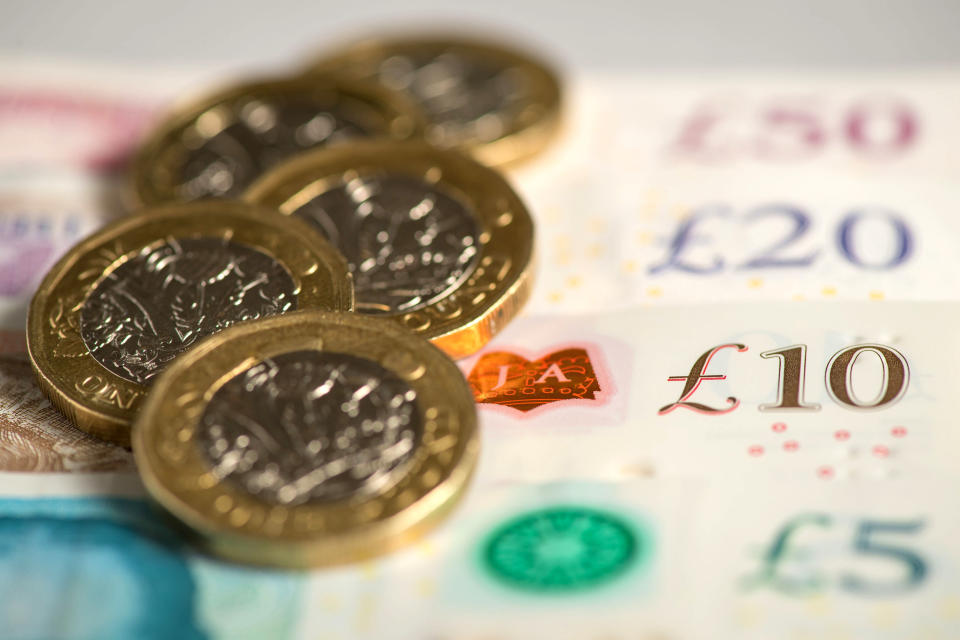Johnson vows to raise minimum wage by four times inflation

Millions of UK workers will see their pay rise more than four times faster than inflation after the biggest ever cash increase in the legal minimum wage next year.
Prime minister Boris Johnson said people “haven’t seen the pay rises they deserve” as he announced plans on Tuesday for a 6.2% increase to the rebranded National Living Wage.
The pay floor, which applies to workers aged 25 and over, will increase from the current rate of £8.21 to £8.72 an hour, in the biggest cash increase since it was introduced two decades ago.
The Treasury said in a press release full-time workers would receive a £930 pay rise over a year under the changes. Younger workers under 25 will also see increases of between 4.6% and 6.5%, depending on their age.
READ MORE: Brits save £870bn as pay grows but Brexit deters spending
The hike outstrips increases in the cost of everyday goods several times over, with official figures showing inflation running at 1.5% in November.
The lowest-paid have already seen their pay packets increase by 8% more than inflation in the three years to April 2018, according to official analysis.
The government had already announced plans earlier this year to hike the minimum wage to two-thirds of median earnings by 2024, “provided economic conditions allow.” On current forecasts it would reach around £10.50 an hour.

Johnson said: “Hard work should always pay, but for too long, people haven’t seen the pay rises they deserve.
“Our government will put a stop to that, giving nearly three million people from Edinburgh to Eastbourne a well-earned pay rise, including the biggest ever cash boost to the National Living Wage.”
READ MORE: The areas of Britain where people earn the most
The news was welcomed by trade unions, but sparked concern among business leaders.
Frances O’Grady, general secretary of the Trades Union Congress (TUC), said the increase was “long overdue,” and backed the opposition Labour party’s call for an immediate hike to £10 an hour.
“Workers are still not getting a fair share of the wealth they create. And in-work poverty is soaring as millions of families struggle to make ends meet,” she added.
Craig Beaumont, director of external affairs at the Federation of Small Business (FSB), warned four in 10 small employers had said a large hike would lead them to increase prices.
“There’s always a danger of being self-defeating in this space,” he said.
Beaumont added that a further one in four would recruit fewer workers and one in 10 would consider redundancies, despite studies showing limited evidence of lower employment after previous hikes.
He added that the rise coincided with business rate hikes in April, and called for the government to swiftly deliver a separate pledge to raise the ‘employment allowance’ tax relief for firms.
READ MORE: Wages set to finally pass 2008 levels in slow recovery from financial crisis
Last week the Resolution Foundation, a leading think tank, said a jobs boom in recent years had also forced employers to raise wages since 2017. The official employment rate now stands at a record-high 76.2%, with the surge taking many economists by surprise, particularly with Brexit on the horizon.
But some see rising employment as an unintended consequence of high uncertainty as Britain edges towards Brexit and growth remains weak.
More cautious employers are thought to have hired to meet short-term needs rather than make long-term investments which could boost output and poor levels of productivity growth.
Britain’s flexible labour market can make laying off certain workers easier than abandoning big projects are to reverse if conditions decline.
Employers competing to hire staff pushed pay growth to 3.9% earlier this summer.
READ MORE: 140,000 retail jobs axed in worst year in quarter of a century
But it comes after an unprecedented pay squeeze over the past decade in spite of rising employment, with real wages struggling to recover since the global financial crisis.
Real earnings, accounting for inflation, are still lower than their pre-crisis peak. The Resolution Foundation said this month it expected average pay to finally edge above 2008 levels in 2020.
Nye Cominetti, an economic analyst at the foundation, said recently the crash had so damaged household incomes it had forced many more people into work or extra hours. Until recently the increased labour supply may have limited upward pressure on wages.
He also wrote in a blogpost of recent “warning signs” as wage growth dropped to 3.5% in the three months to October.
Cominetti noted vacancies had been falling throughout 2019, and the economy stagnated in the three months to October. “It feels inevitable that the slowdown in the wider economy will start to feed through into the labour market,” he wrote, suggesting pay growth could continue to slow.

 Yahoo Sport
Yahoo Sport 





































